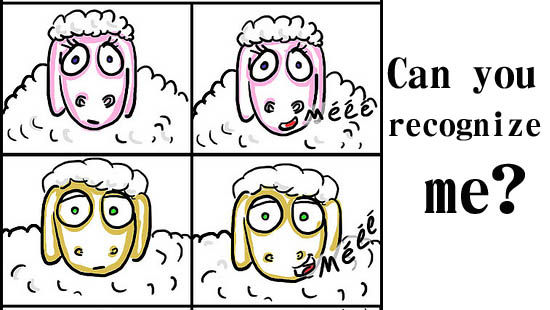| 正面 | 780.recognize 英 ['rekəɡnaɪz]美 ['rɛkɚɡnaɪz]     |
|---|---|
| 背面 |      释义: 1. 不(dis-)轻松(舒服)(ease)就得病(disease).vt. 认出,识别;承认vi. 确认,承认;具结 例句: 1. Why were grown-ups always so stuffy and slow to recognize good ideas?为什么成年人总是那么一本正经,对好点子反应那么迟缓呢? recognize 认识,认出re-,再,重新,cognize,认识,认出,词源同 know. recognizerecognize: [15] Latin gnōscere ‘become acquainted’ came from the same prehistoric Indo-European base, *gnō-, as produced English know. Combination with the prefix co- ‘with’ gave cognōscere ‘know’ (source of English cognition, quaint, etc). And this in turn had the prefix re- ‘again’ added to it to produce recognōscere ‘know again’, which found its way into English via reconniss-, the stem of Old French reconnaistre (the -ize ending is an English introduction).English has three noun derivatives of the verb: recognition [15], from Latin recognitiō; recognizance [14], now purely a legal term, borrowed from Old French reconnissance and remodelled on the basis of recognize; and reconnaissance [19], borrowed from modern French during the Napoleonic wars. Reconnoitre [18] comes from the now obsolete French reconnoître, which like its surviving variant reconnaître goes back to Latin recognōscere.=> cognition, know, quaint, reconnaissance, reconnoitrerecognize (v.)early 15c., "resume possession of land," back-formation from recognizance, or else from Old French reconoiss-, stem of reconoistre "to know again, identify, recognize," from Latin recognoscere "acknowledge, recall to mind, know again; examine; certify," from re- "again" (see re-) + cognoscere "know" (see cognizance). Meaning "know again, recall or recover the knowledge of, perceive an identity with something formerly known or felt" first recorded 1530s. Related: Recognized; recognizing." |